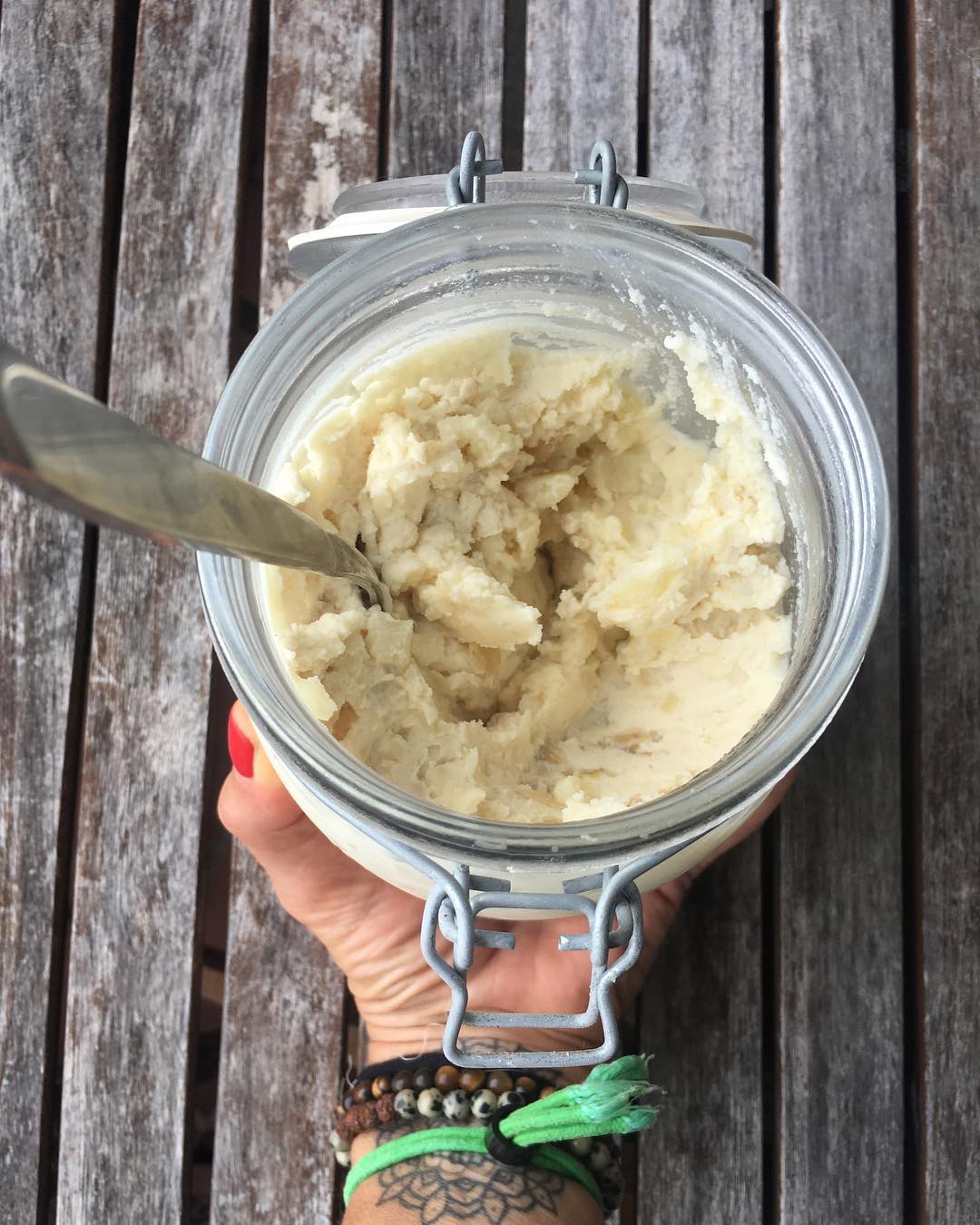What is Resistant Starch and Butryic Acid and how does it help with good gut health?
Resistant starch is a type of starch that doesn’t break down.
It “resists” digestion – instead of being absorbed as glucose like most starches. Resistant starch travels through the small intestine to the colon where it is turned into beneficial, energy boosting, inflammation killing short-chain fatty acids by intestinal bacteria. Amazing stuff!
One of the fatty acids is called butyric acid – your secret weapon to good gut health! It has superior health benefits in the large intestine.
It helps to maintain a healthy intestinal lining and may reduce symptoms of inflammatory bowel disease.
It may also lower the risk of colon cancer.
On the Gut Makeover Program?
If you are at Week 4 of the Gut Makeover Program and are feeling ready to try some resistant starch in your diet please do, try the Fermented Potatoes Recipe included in the Program. It’s incredibly healing.
Remember, everybody is unique and as with ferments, it should be something you approach in micro doses and work your way up, checking each time with you gut to see if it’s well tolerated or not.
Different Types of Resistant Starches:
There are different types of starches so refer to the chart below – try working with a small amount of RS Type 1 and 3 with your meals:
RS Type 1 – Starch that is bound by fibrous cell walls and therefore resists digestion, such as beans, legumes, grains, nuts, seeds.
RS Type 2 – Indigestible due to it’s high amylase content when in its raw form, such as found in potatoes, bananas (green), plantains. Do not heat these or over-ripen as otherwise you lose the resistant starch.
RS Type 3 – This resistant starch goes through a process called retrogradation – when starches are cooked and then cooled, which allows the digestible starch in certain foods like rice, potatoes, and beans to be more resistant to digestion.
RS Type 4 – Man made industrial resistant starch. Do not use.
Here are just some of the benefits of consuming resistant starch:
• Stabilises blood glucose levels and increases insulin sensitivity
• Improving cholesterol and triglyceride levels
• Reduces appetite and increases satiation
• Maintains of normal gut function
• Increases good bacteria (flora)
• Produces biotin, folate and vitamin K
• Increases immunity
• Enhances breakdown & elimination of toxins
• Helps with auto-immunity issues
• Helps with IBS
• Helps with Colitis
• Helps increase bowel regularity
• Helps with Allergies
Resistant starch can be included through foods such as:
• Green bananas (unripe)
• Plantains
• Legumes (cooked and cooled)
• Parboiled rice (including wild rice)
• Cooked and cooled potatoes (eat when cold)
• Fermented Potatoes (my favourite)
Or Supplements such as:
• Potato starch
• Plantain flour
• Green banana flour
• Cassava/tapioca starch
Things to watch out for:
When first starting out with resistant starch, some gas and bloating can be noticeable, but should subside over time. When side effects are stabilized, you can safely work your way up to 30 grams of resistant starch.
Try my Fermented Potatoes Recipe as it has the benefits of resistant starch – yet it’s also been fermented so it’s an extra boost to your gut bacteria!
Great to serve with salad or soup as a condiment. However be warned, it is so addictive I may have been known to eat most of the jar of fermented potatoes in one sitting. :)
Remember, less is more in the beginning, and if symptoms persist, seek advice from your healthcare practitioner.
Grab the Gut Makeover Program if you’re ready to love and heal your gut in four easy steps – fermented potatoes recipe + dozens more gut healing recipes included!
<3
Pssst. Get instant tips, recipes and more by following me at The Raw Food Kitchen on Instagram here.



